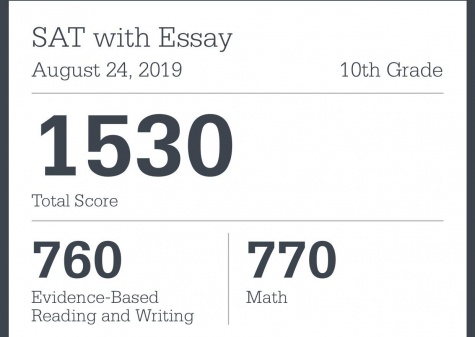
Kate Hedger | Student Life Editor
December 9, 2020
Since the 1960s, students have had to prove their worth to colleges by taking the SAT or ACT. These tests take a ton of preparation time and money, and, for people who aren’t good at test taking, it is an absolute nightmare.
These college entry standardized tests have been around for generations, but are they really the best way to measure a students success in college? The answer is not black and white, and strong arguments exist both for and against the tests.
A major positive to the SAT and ACT is that students who lack competitive GPAs for their dream school can use the tests to reassure colleges about academic readiness. People also view the test as an objective evaluation, which is important to have because of the differences in curriculum, classes, and grading styles across schools.

Though there are people who defend the tests, many people find them to be discriminatory and unfair. Between expensive tutoring, test prep classes, and flat out bribery, it’s clear the higher income students have a better chance of success. Studies have also confirmed that GPA is a more accurate predictor of college success than standardized tests.
“My parents and I invested a lot of our time and effort into performing well on the ACT this past year, but I don’t think these assessments are a good portrayal of someone’s intelligence,” senior Madi Gonzalas said. “They are strategic tests that many students don’t have the means to prepare for due to different economic statuses and availability. These standardized tests shouldn’t be used to determine someone’s overall academic capabilities.”
Because of Covid-19, students around the country weren’t able to take the SAT and ACT. This has resulted in almost every college across the country either becoming test optional or ignoring the tests altogether.
“I’m both happy and sad about not taking the SAT because I don’t need to take a 5 hour test which is great, but I know that it will affect my college applications,” senior Griffin Glenn said. “Even though some colleges are not requiring it and can still affect which students get chosen.”
Like many schools across the nation, the University of California (UC) is test optional, but they have taken things a step further; UC has decided to suspend the ACT and SAT as an admissions requirement until 2025. UC is remaining test optional through 2022, and then will have the option for students to submit their test for course placement and scholarships only in 2023-24.
Because of the UC changes, the SAT and ACT will see significantly less students. UC’s decision will likely change the course of the exam forever and could inspire other schools to follow suit and address the negatives that surround college entry exams.

I’ve always considered it strange how laws that protect individuals from the impacts of monopolies doesn’t apply to education. College Board owns the rights to all of the exams you’ve mentioned. Their only competition, really, is The IB Organization.